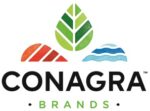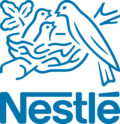Please note all times are local, Central Daylight Time
7 October, 2024
5:00 pm - 6:00 pm
ROOM 3
WELCOME DAY SPECIAL CONTENT
Empowering Women in the Food Manufacturing Industry
- Advocating for equal job opportunities for women in all roles within the food manufacturing sector, from production and quality control to leadership positions
- Encouraging companies to implement gender-neutral hiring practices and ensure that promotions are based on merit rather than gender
- Supporting initiatives that provide women with access to education and training programs related to food manufacturing, equipping them with the skills and knowledge needed for diverse roles in the industry
- Implementing mentorship programs and support networks to help women connect, share experiences, and receive guidance from successful professionals in the food manufacturing space
6:00 pm - 7:00 pm
Welcome Drinks Reception for the Evening of October 7th
8 October, 2024
7:30 am - 8:15 am
Registration & Breakfast
8:15 am - 8:20 am
Opening Remarks and Important Announcements
8:20 am - 8:30 am
Chair’s Welcome Address
8:30 am - 9:05 am
Large-Scale Transformation

- Revolutionizing not only how the food is being produced, but also how customers engage with it
- Understanding that the system is undergoing systematic transformation and asking tough questions to conceptualize leader’s roles in the future
- Formulating effective strategies to enhance operational systems and achieve impactful results
- Cultivating investor relationships to effectively mitigate risks and maintain a balance between regulatory compliance and meeting quality and safety standards
Alexandre Eboli
EVP & Chief Supply Chain Officer
Conagra Brands
9:05 am - 9:40 am
PepsiCo’s Approach to Optimizing Operations for Efficiency and Sustainability

- Overview of PepsiCo’s best practices in optimizing manufacturing and warehouse operations to enhance efficiency, productivity, and sustainability
- Case studies highlighting innovative approaches employed by PepsiCo to streamline production processes, minimize waste, and reduce environmental impact within manufacturing facilities and warehouses
- Discussing the role of technology and automation in driving operational excellence, including examples of how PepsiCo utilizes robotics, AI, and predictive analytics to improve decision-making and resource allocation
- Insights into PepsiCo’s strategies for talent development and workforce empowerment within manufacturing and warehouse operations, emphasizing the importance of employee engagement, training, and continuous improvement
- Sharing opportunities for collaboration and knowledge exchange among industry peers to address common challenges and drive collective progress towards more sustainable and efficient manufacturing and warehouse practices
Reggie Haith
VP, Manufacturing & Warehouse Operations
PepsiCo
9:45 am - 10:20 am
WORKSHOP
ROOM 1
The Challenges of Automated Inspection Systems

- Discussing the challenges of designing a system that can effectively handle the variability of the food industry
- Investing in technologies that automate systems to ensure accuracy
- Addressing the issues of adapting these systems to unforeseen changes which may be time-consuming and costly, limiting its flexibility
- Offering solutions to ensure that the technology complies with industry regulations and standards
9:45 am - 10:20 am
WORKSHOP
ROOM 2
Lean Manufacturing: Streamlining Processes for Efficiency
- Utilizing value stream mapping to visually represent the entire process from raw material acquisition to the delivery of the final food product
- Identify and eliminate non-value-added steps or waste in the production chain, such as excess inventory, unnecessary movements, or waiting times
- Fostering a culture of continuous improvement to encourage employees at all levels to actively participate in identifying and implementing small, incremental changes to enhance efficiency
- Regularly review and analyze KPIs related to production, waste, and quality to identify opportunities for improvement
10:25 am - 12:05 pm
Pre-Arranged One-to-One Meetings
- 10:30 am – 10:50 am: Meeting Slot 1/Networking
- 10:55 am – 11:15 am: Meeting Slot 2/Networking
- 11:20 am – 11:40 am: Meeting Slot 3/Networking
- 11:45 am – 12:05 pm: Meeting Slot 4/Networking
12:10 pm - 12:45 pm
CASE STUDY STREAM 1
PROCESS IMPROVEMENT & AUTOMATION
Shop Floor Optimization to Maximize Efficiency

- Offering strategies such as lean manufacturing techniques to minimize waste and streamline processes
- Introducing automated systems for repetitive tasks to enhance speed and accuracy
- Investing in smart technologies such as sensors and robotics to improve production line efficiency
- Discussing the role of advanced monitoring systems to track equipment performance and detect potential issues
Douglas Guilherme
VP Supply Chain US & Canada
The Hershey Company
12:10 pm - 12:45 pm
CASE STUDY STREAM 2
SUPPLY CHAIN
Key Strategies to Enhance Supply Chain Visibility

- Implementing Advanced Tracking Technologies to monitor the movement of raw materials and finished products throughout the supply chain in real-time
- Employing predictive analytics and machine learning algorithms to analyze vast amounts of data from various sources, enabling proactive identification of potential disruptions and optimization of inventory management
- Fostering transparent communication and collaboration with suppliers and partners to gain insight into their processes, ensure compliance with quality and safety standards, and mitigate risks
- Exploring traceability solutions to provide consumers with access to detailed information about the origin, journey, and attributes of food products, strengthening trust and loyalty
Josh Chou
Chief Supply Chain Officer
McCormick & Company
12:45 pm - 1:45 pm
Overflow Lunch Seating
12:46 pm - 1:45 pm
THEMED LUNCH DISCUSSION
Customization Versus Mass Production: Striking the Right Balance

Eric Seip
SVP Global Operations & CSCO
Ingredion
12:46 pm - 1:45 pm
THEMED LUNCH DISCUSSION
Optimizing Equipment Uptime and Performance

April Wiebe
Plant Manager
Maple Leaf Foods
12:46 pm - 1:45 pm
THEMED LUNCH DISCUSSION
Meeting Consumer and Environmental Expectations Through Innovative Packaging Solutions

Andrew Ahn
Plant Manager
Rise Baking Company
1:45 pm - 2:20 pm
Managing Energy Consumption and Costs

- Developing a comprehensive energy management plan by utilizing energy audits so companies have a detailed look at where improvements can be made to ultimately reduce costs
- Investing in replacing older equipment with newer more energy efficient models which can lead to improved product quality and reduce downtime
- Optimizing production processes to reduce energy consumption and costs by adjusting productions schedules, cutting down on idle time and more
- Exploring the use of renewable energy sources to reduce reliance on traditional energy sources
Mike Kuntz
Senior Vice President of Manufacturing
Nestlé
2:25 pm - 3:00 pm
WORKSHOP
ROOM 1
Navigating Disruptions in Manufacturing
- Creating a diversified supply chain network to reduce dependence on a single source
- Discussing the importance of regularly assessing and reassessing supplier capabilities, resilience, and contingency plans
- Investing in predictive analytics to anticipate and proactively address potential disruptions
- Implementing modular production systems that allow for easy reconfiguration and scalability
2:25 pm - 3:00 pm
WORKSHOP
ROOM 2
Strategic Solutions for Minimizing Repeat Shutdowns in Food Manufacturing Facilities
- Conducting regular risk assessments to identify vulnerabilities in the production system and address potential points of failure
- Developing a robust contingency plan, including backup systems and alternative production routes, to ensure minimal disruption in case of unexpected events
- Maintaining a strategic inventory of critical spare parts to minimize downtime during equipment failures
- Establishing a proactive maintenance schedule based on real-time monitoring, reducing the likelihood of unexpected breakdowns
3:05 pm - 4:15 pm
Pre-Arranged One-to-One Meetings
- 3:05 pm – 3:25 pm: Meeting Slot 5/Networking
- 3:30 pm – 3:50 pm: Meeting Slot 6/Networking
- 3:55 pm – 4:15 pm: Meeting Slot 7/Networking
4:20 pm - 4:55 pm
The Importance of Strong Leadership

- Guiding the development of robust strategies to address challenges such as supply chain disruptions, regulatory changes, and market demands
- How leaders foster a culture of compliance and accountability to uphold the highest standards in food safety protocols and manufacturing practices
- Discussing how leadership has evolved and how to effectively influence the culture of your organization
- Offering solutions to help develop and promote the future leaders of tomorrow
Mike Gomes
VP Central Operations
Kroger
4:55 pm - 5:30 pm
Navigating the Challenges of Rising Costs

- Navigating various challenges such as droughts and tariffs
- Implementing efficient supply chain strategies to reduce the impact of rising raw material prices
- Shifting production practices, processing techniques, and packaging materials to align with consumer preferences for sustainability and health
- Responding to consumer willingness to pay more by offering innovative organic and nutrient-dense product lines
- Adapting quickly to stay competitive and keep up with changing customer preferences
- Forming strategic partnerships with local businesses and distributors to gain a competitive edge
Tanya Peterson
VP External Manufacturing
Mondelēz
5:30 pm - 5:35 pm
Chair’s Closing Remarks
5:35 pm - 6:35 pm
Drinks Reception
9 October, 2024
7:30 am - 8:20 am
Registration & Breakfast
7:45 am - 8:20 am
BREAKFAST WORKSHOP
ROOM 2
A Journey into Smart Factory Implementation
- Highlighting the significance of integrating advanced technologies to streamline production processes
- Offering practical solutions for real-time monitoring and data analytics enable quick decision-making
- Utilizing smart sensors at various stages of the production line ensures consistent quality control by continuously monitoring critical parameters like temperature, humidity, and ingredient proportions
- Integrating AI-powered tools in the manufacturing process to enhance worker productivity and safety
8:25 am - 8:35 am
Chair’s Welcome Address
8:35 am - 9:10 am
The Crucial Role of Sustainability in Food Manufacturing
- Implementing practices that prioritize minimizing environmental impact by reducing resource consumption, waste generation, and greenhouse gas emissions
- Sourcing ingredients from sustainable and responsible suppliers, ensuring fair labor practices and support for local communities
- Minimizing food and packaging waste through efficient production processes and innovative packaging solutions, reducing the burden on landfills
- Adopting energy-efficient technologies and practices to reduce energy consumption, lower operational costs, and mitigate the carbon footprint of food manufacturing operations
- Enhancing a company’s reputation and appealing to a growing segment of environmentally conscious consumers, contributing to brand loyalty and competitiveness in the market
Elito Siqueira
Chief Supply Chain & Distribution Co. Officer, North America
Anheuser-Busch InBev
9:10 am - 9:45 am
The Digital Transformation Journey

- Integrating IoT devices and sensors in food production processes to collect real-time data on equipment performance, product quality, and environmental conditions
- Gaining visibility through advanced analytics to derive actionable insights from the collected data to optimize production efficiency
- Utilizing digital platforms and blockchain technology for end-to-end visibility in the supply chain, enabling better tracking and monitoring of raw materials, ingredients, and finished products
- Discussing how to effectively automate production lines and implement robotic process automation to streamline workflows
- How to effectively integrate AI and machine learning algorithms for predictive quality control
Kristen Daihes
VP of Global Supply Chain
Mars
9:50 am - 10:25 am
CASE STUDY STREAM 1
PROCESS IMPROVEMENT & AUTOMATION
Managing Shutdown and Disruptions Effectively

- Conducting comprehensive risk assessments to identify potential points of failure in the supply chain, and develop robust contingency plans to mitigate the impact of shutdowns caused by factors such as natural disasters, pandemics, or regulatory issues
- Enhancing resilience in the supply chain by reducing dependency on single suppliers or sourcing regions by diversifying the supply base
- Maintaining adequate safety stock and buffer inventory levels of critical raw materials and finished goods to minimize the impact of sudden shutdowns on production and fulfillment capabilities, ensuring continuity of operations during challenging times
- Implementing flexible production strategies to enable quick adaptation to changes in demand patterns or disruptions
Sarvi Bajwa
SVP Manufacturing
Danone
9:50 am - 10:25 am
CASE STUDY STREAM 1
SUPPLY CHAIN
Navigating the Challenges of Labor Shortages
- Addressing the challenges of the labor shortage as it impacts production levels, efficiency, and ultimately, profitability
- Providing solutions to help attract, find, and retain skilled workers through flexible work schedules and improving working conditions
- Investing in automation technology which can reduce costs associated with manual labor while increasing production efficiency
- Increasing education and training opportunities to attract and encourage younger generations through internships, apprenticeships and training programs
Bill Durbin
Vice President Logistics
The Kraft Heinz Company
10:25 am - 11:15 am
Pre-Arranged One-to-One Meetings
- 10:30 am – 10:50 am: Meeting Slot 8/Networking
- 10:55 am – 11:15 am: Meeting Slot 9/Networking
11:20 am - 11:55 am
WORKSHOP
ROOM 1
Sustainable Waste Management Solutions
- Implementing efficient production processes to minimize waste generation
- Reusing by-products and surplus materials within the manufacturing cycle
- Designing a closed-loop system to promote the recycling and repurposing of waste
- Utilizing waste-to-energy technologies to convert organic waste into power
- Investing in renewable energy sources to reduce overall environmental impact
11:20 am - 11:55 am
WORKSHOP
ROOM 2
Strategies for Managing and Maintaining Quality
- Implementing and regularly updating comprehensive quality assurance protocols aligned with industry regulations
- Conducting routine audits to ensure compliance with local, national, and international food safety standards
- Fostering a culture of continuous improvement by staying abreast of evolving regulations and promptly adapting processes
- Investing in sophisticated testing equipment to enhance accuracy and speed in quality assessments, minimizing the risk of defects and contamination
12:00 pm - 12:35 pm
Key Strategies to Future-Proof Operations

- Reimagining the food system and rethinking the value companies want to provide
- Adopting new technologies and methods in food manufacturing and discussing improvements in the automation of various processes
- Recognizing the impact of urbanization and globalization on the food industry
- Exploring strategies to increase production capacity and meet the burgeoning demands of the future
- Prioritizing customer-centricity, sustainability, and interconnected ecosystems for ongoing innovation
Michael Wrobel
VP Supply Chain, Snacks
General Mills
12:35 pm - 1:35 pm
Lunch
1:35 pm - 2:10 pm
CASE STUDY STREAM 1
PROCESS IMPROVEMENT & AUTOMATION
Food Traceability and Recall Preparedness in Today’s Supply Chains
- Discussing how blockchain facilitates real-time tracking of food products, from farm to table, ensuring accuracy and efficiency in recall processes
- Exploring the importance of seamless data integration across the supply chain to enable effective traceability
- How predictive analytics can enhance the speed and accuracy of recall responses, minimizing the impact on consumers and the brand
- Offering strategies for transparent and timely communication with consumers during a recall, fostering trust and loyalty
1:35 pm - 2:10 pm
CASE STUDY STREAM 1
SUPPLY CHAIN
Cultivating Strong Supplier Relationships
- Foster collaborative partnerships with suppliers based on trust, transparency, and mutual benefit, establishing open lines of communication and shared goals for quality, reliability, and continuous improvement
- Implementing robust supplier performance management processes to assess supplier capabilities, track performance metrics, and provide feedback for continuous improvement
- Aligning supplier relationships with long-term strategic objectives, considering factors such as innovation, sustainability, and social responsibility, and nurturing partnerships that support shared values and drive mutual innovation and growth
- Investing in supplier development initiatives, such as training programs and joint innovation projects, to enhance supplier capabilities, foster continuous learning, and drive product and process improvements
2:10 pm - 2:45 pm
The Ongoing Energy Crisis
- Discussing the importance for the food and beverage industry to do all they can to keep rising costs to a minimum
- How to leverage economic growth in certain regions to create new markets for food products
- Implementing energy-efficient layout designs that optimize the use of space, reducing the need for excess lighting, heating, and cooling
- Collaborating with energy providers to explore green energy purchasing options and support the transition to a more sustainable energy mix
- Utilize advanced climate control systems and insulation techniques to minimize energy consumption associated with maintaining temperature-regulated environments
